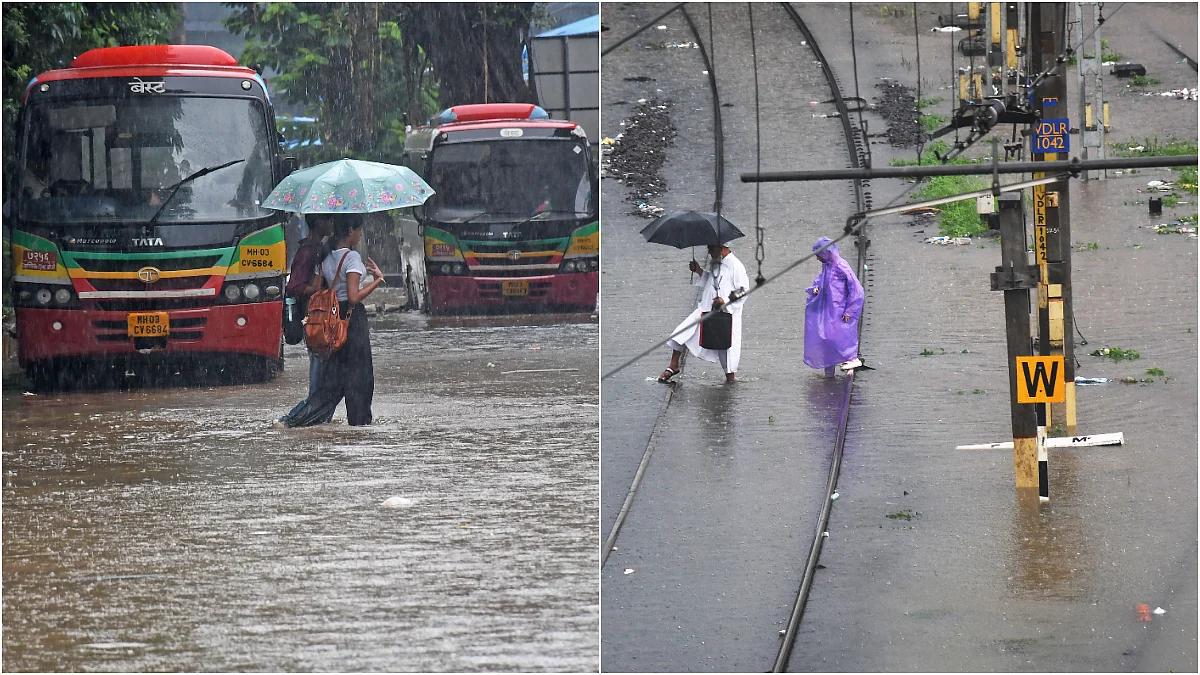Advaitesha Birla is the Founder of Ujaas, an initiative by Aditya Birla Education Trust to support and promote menstrual health and hygiene management. Having closely seen the impact of age-old menstrual stigmas and outdated practices on the lives of those around her, she wanted to make a difference in this space. She has always been passionate about gender equality and helping women empower themselves. She believes that issues around menstrual health and hygiene are intricately linked to a girl’s ability to access higher education, career opportunities, and pursue her potential in life.
1) What made you initiate this idea of Ujaas?
Menstrual health and hygiene have always been close to my heart, especially because of the role it plays in women's empowerment. I recall reading an article about menstrual health and its impact on women's lives in India. Coming to terms with the figures and statistics regarding the day-to-day experiences of millions of women was both upsetting and eye-opening. That's when I knew I wanted to do something with this space. I believe it should be a basic right for every girl and woman to have a safe, comfortable, and dignified experience with menstrual health.
2) What is Ujass?
Ujaas aims to improve menstrual health and management, particularly in underserved communities. It aims to tackle the stigma associated with menstruation, provide access to affordable menstrual hygiene products, and raise awareness about menstruation and menstrual health.
We've started our project in 16 villages and 13 tribal padas across four Maharashtra districts, where we're collaborating with grassroots organisations to carry it out.
The project has three core verticals:
- Awareness - creating awareness about menstrual health and management among adolescent girls and women.
- Distribution - providing sanitary napkins to our target population, who face access and affordability issues.
- Sustainability - identifying and promoting sustainable measures for menstrual health.
We plan to expand our work to other districts in Maharashtra and other states as we progress. We're also working to reach out to vulnerable communities, as part of our purpose.
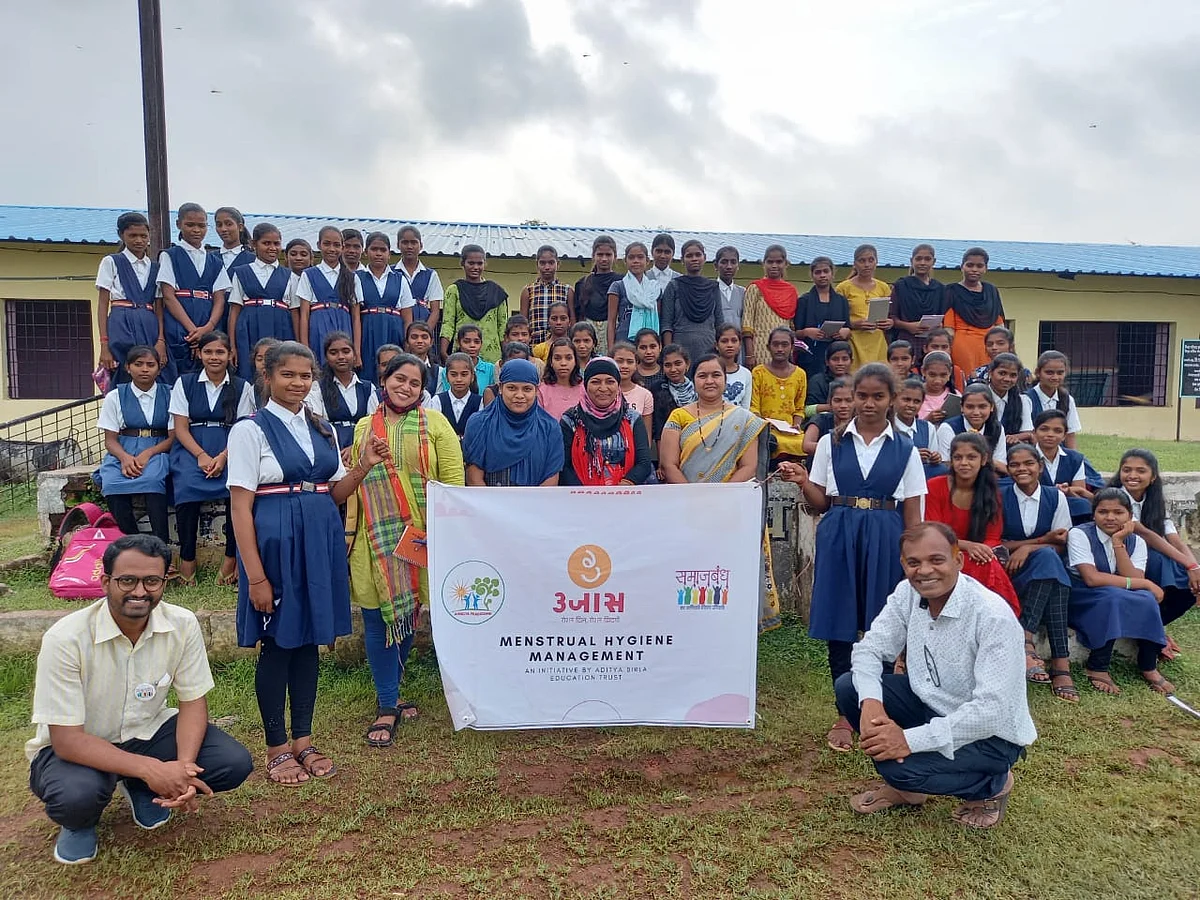
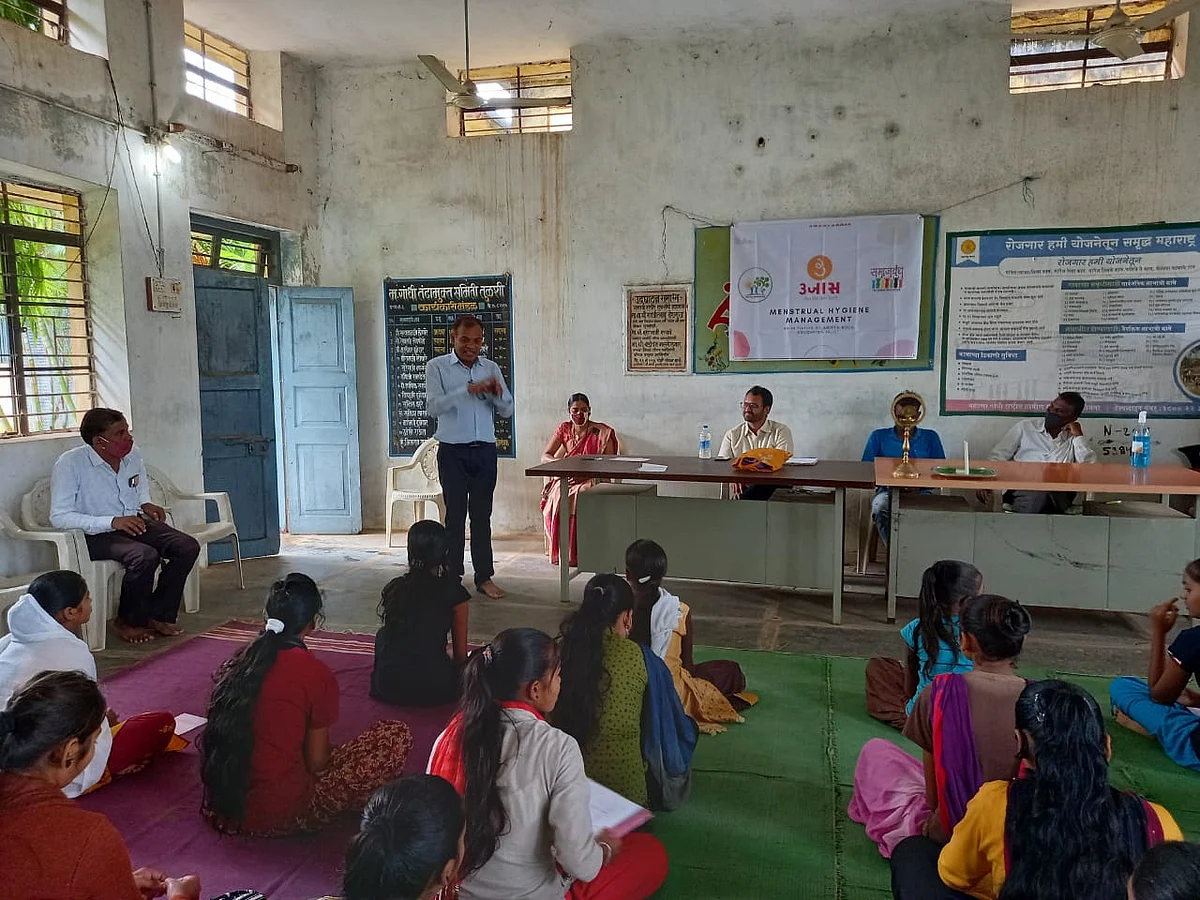
3)How will this initiative be associated with schools?
With our current program, we are working with 50 schools in Amravati, Washim, and Palghar districts of Maharashtra to promote awareness about menstrual health. Our goal is to provide girls in grades 8 to 10 with credible sources of information that they can use in their daily lives. Our programs are not only informative but also interactive and engaging in nature to ensure that participants get the most out of them.
4) Do you think awareness is the only step to be taken for any initiative? What about people following it later?
Due to the stigma and misinformation surrounding menstrual health, raising awareness is vital. It casts very tall shadows over the lives of girls and women around it. It has an impact on their mental and physical well-being, as well as their ability to access education and other possibilities. I believe that raising awareness is the first and most crucial stage. People should then be able to practice what they've learned into in their daily lives, as well as pass on these habits to the next generation. There is a serious lack of affordable menstrual hygiene products, particularly in rural areas. So, we prioritize the distribution of sanitary napkins to girls and women. So far, we've reached out to over 7000+ beneficiaries and donated more than 1,50,000 sanitary napkins.
5) The government has launched this program for awareness. Can we expect Ujaas to collaborate with it at any time?
This is a cause that has an impact on the lives of millions of women in India. Collaborations and joint initiatives with the government, in my opinion, are a great way for organizations to pool their resources and capabilities to expand their reach and effectiveness. At Ujaas, we eagerly anticipate all opportunities for meaningful collaborations. Together, we can do more and do better!
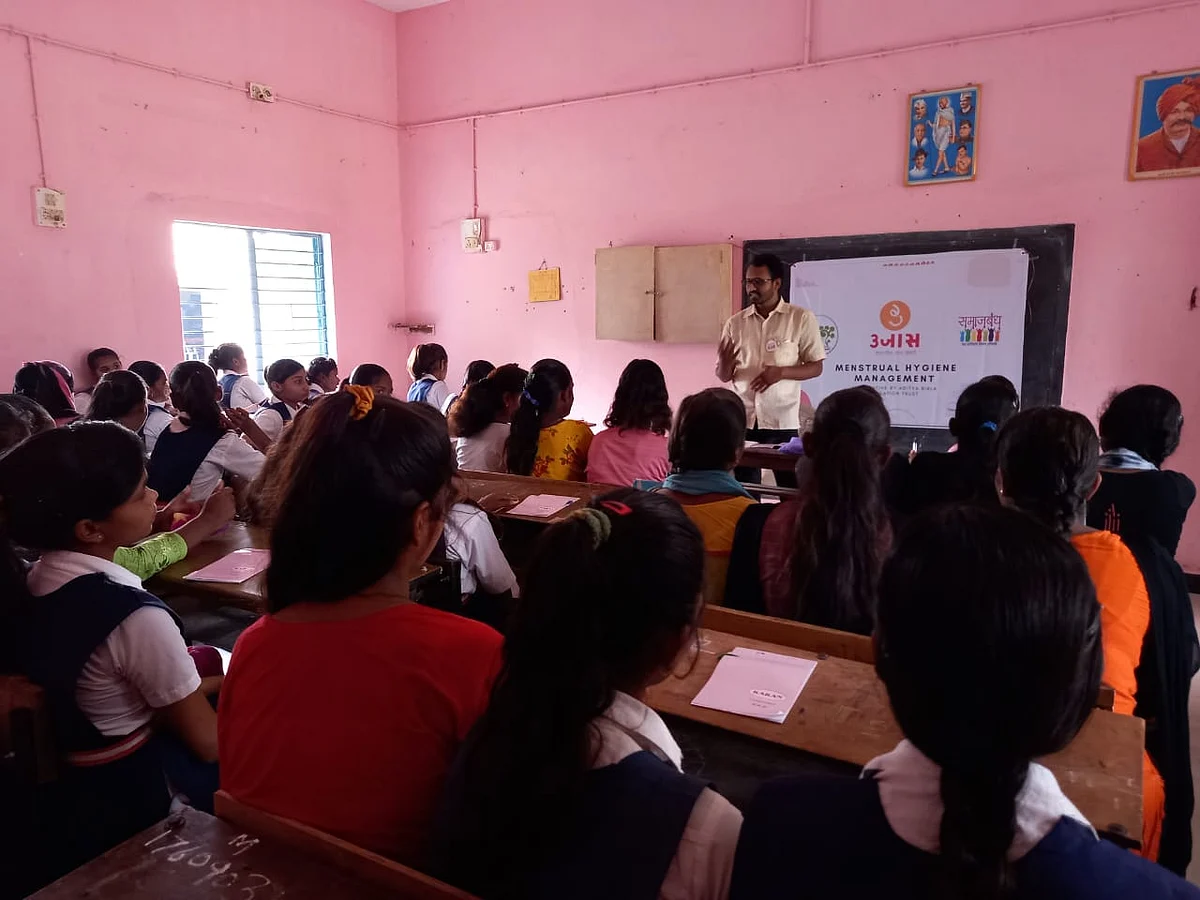
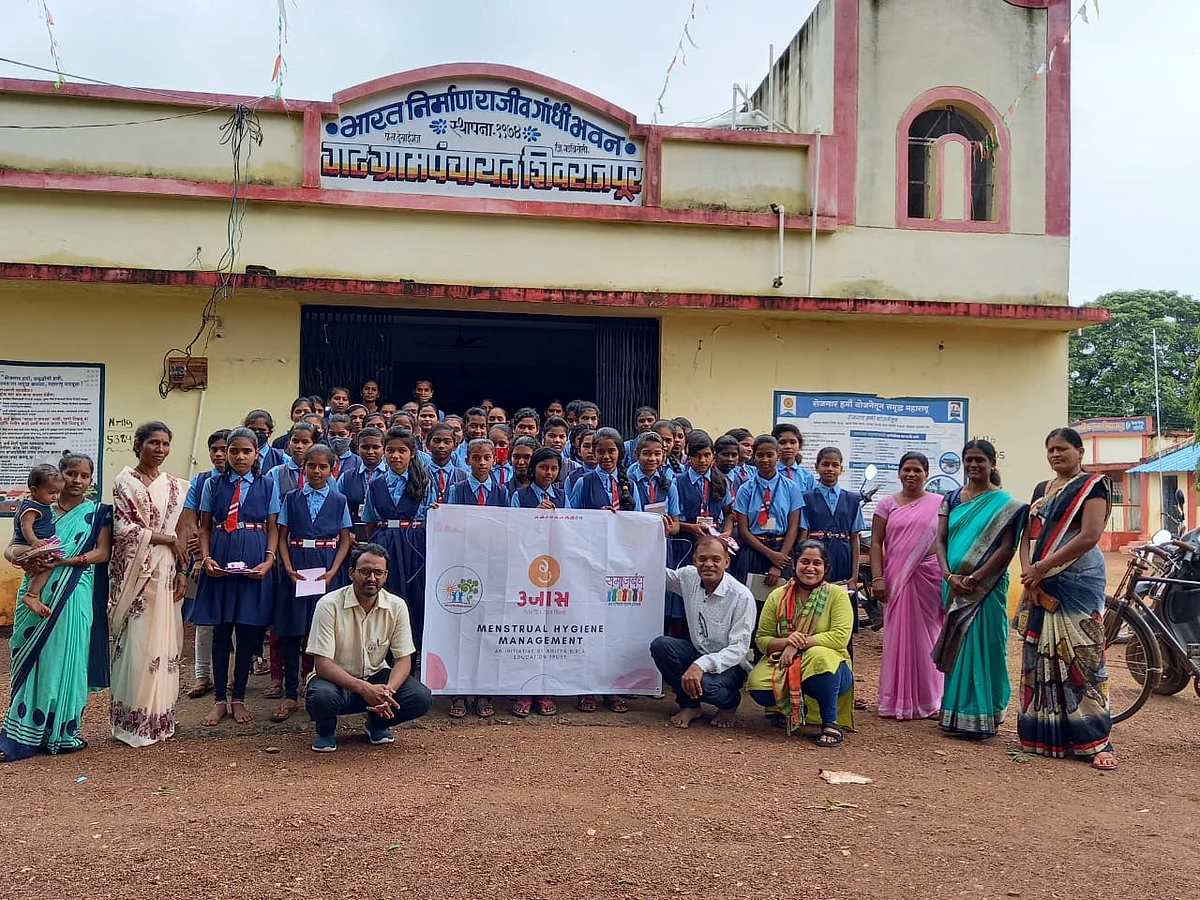
6) Do you think menstrual hygiene should be taught at the school level as a special subject?
Absolutely. Menstrual Health and hygiene should be taught in school at the proper age, so that young people are prepared to deal with menarche. I came across a 2016 study that showed that 50% of girls were unaware of menstruation until they got their first period. It can be dangerous and traumatising for girls to be unaware of or, even worse, to be informed incorrectly through hearsay.
I also believe that having both boys and girls in these sessions is vital. This will help in the normalisation and de-mystification of menstruation and female anatomy among their peers. I feel it will help them all to be more supportive and empathic with each other. This could lead to a reduction in gender inequalities in general, both in school and subsequently in life.
Girls' school dropout rates in India are currently as high as 57 percent, particularly in rural and remote areas. Periods can cause girls to miss up to 20% of their working days in a year if they continue to attend school. Menstrual hygiene products, sanitation facilities in schools, and outdated cultural norms, as well as a very real worry for girls' safety, are all factors that contribute to this drop-out. I feel that including menstrual health classes in the regular curriculum will go a long way toward building a school environment that is menstruation-friendly, preventing girls from dropping out.
7)Any thoughts about educating parents and mothers about it?
Families still refuse to publicly discuss menstruation health and hygiene management, and they frequently opt not to send their women and adolescent girls to our awareness programmes. Indeed, without the help of their families, our beneficiaries frequently lack the transportation needed to attend our workshops. As a result, we must speak with not only parents and families, but also entire communities.
We're seeking to break down taboos and foster open dialogue by talking to them. We need to hold workshops for mothers and train them so that their daughters can get important knowledge from them. Mothers also serve as a support system for their daughters, and they have the potential to instill in them a progressive and informed attitude toward menstruation. Mothers can also help.
8) What about the language barrier?
I have to admit that language was initially a problem for us. And we recognised that we wouldn't have the impact we wanted unless and until we spoke to individuals in their language and dialect. As a result, we now have dedicated trainers for each location. Our trainers are native speakers who are familiar with not just the local dialect but also the local customs and cultural ethos. We are aiming to cross the cultural divide and become one of them by doing so. As a result, the community and our beneficiaries are more accepting of our presence and more responsive to our seminars. Similarly, we tie up with local grassroots level organisations everywhere
9) Is sex education part of your action plan?
Yes, sex education is part of Ujaas’s menstrual health awareness and education plan. However, we look at it as a secondary step. Our first objective is to create awareness by covering an array of important topics ranging from the biological importance of menstruation to medical facts about it and dispelling the myths, taboos, and stigmas surrounding it. Only once our beneficiaries receive education about menstrual health and hygiene management and become comfortable with the topic, then we delve into the sex education part of it. Moreover, we’re extremely careful about how we talk about it. We always deliver age-appropriate learning to our beneficiaries about sex education. We’re careful to not offend any cultural sensibilities and always ensure that we speak about it in a manner that our beneficiaries are comfortable with.
10) How will you follow up on your action and see if what you’re doing for them is maintained?
Our intention always is to not stop after just a one-time intervention with any community. First of all, we schedule follow-up workshops to evaluate how much of a difference the last workshop has made to our beneficiaries in that community. We also distribute free sanitary napkins regularly to all our beneficiaries and assess how they’re using them and how beneficial they are to them. Most importantly, Ujaas’ core value is to promote sustainable measures for menstrual health management by setting up support groups and support systems within the communities themselves.
To achieve this, we’re tapping into the vast potential of communities and training many of our beneficiaries so that they can become torchbearers of our movement. When we create awareness in ten girls and train them, we encourage each one of them to go on and train ten more girls… and so on. This has already started having a ripple effect where the number of people that we are reaching out to is growing exponentially. Moreover, we have a system in place to keep track of how many people we’re reaching out to so that we can follow up with them regularly








